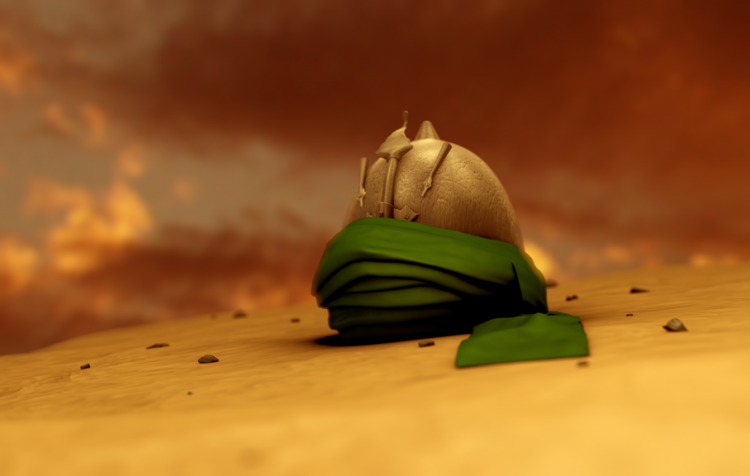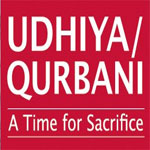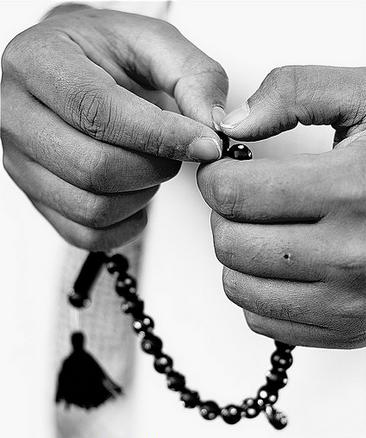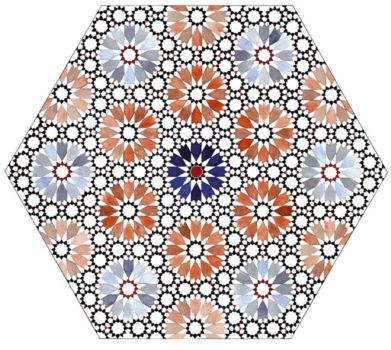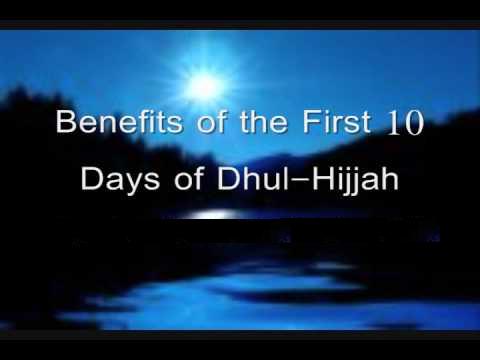“These two sons of mine are the leaders of the youth in Paradise.”1
The Prophet ﷺ
Much has been claimed and said regarding the marked departure in political stances between the two grandsons of the Messenger of Allah (peace & blessings be upon him & his family). Quietism versus activism, leads to juxtaposing political compromise with martyrdom. A saying states, “Live like Muhammad (peace & blessings be upon him), but die like Husayn (may God be pleased with him)”, seemingly dismissive of Hasan’s (peace be upon him) decisions for unity. A previous post introduces these great personalities and the choice we need to make to love the Prophetic House. Between the critics and supporters, the commonality in higher purpose that unites these two sons of Fatima (peace be upon her) is often lost. Did the objectives of the Imams truly differ?
The key impulse for both personalities was to safeguard the sacredness and rights of faith (Haqq al Din), life (Haqq al Nafs), communal interests (Haqq al Nasl), and legitimate political determination (Haqq Al Hurriyyah), as these are all ontologically connected to the Divine. Imam Hasan (may God be pleased with him) bore these higher principles in mind when he spoke to his political adversary plainly stating this: “Leave aggression and prevent the blood of the Muslims from shedding. By Allah, you have shed much of their blood. Fear God, for you will meet Him.”2
The political adversaries were centered in the Ummayad clan. The same clan, led by Abu Sufyan, that fought the Prophet himself. It was stated by the Ummayad Marwan b. al Hakam to the Madinan Governor Al Walid,“If al-Husayn leaves you now without giving the pledge of allegiance, you will never have the same power over him until there are a great number of slain men between you and him. Imprison the man and don’t let him leave you until he has paid homage (to Yazid), or you have executed him.” Husayn sought refuge in Mecca before he feared that the sacred city would be attacked, and journeyed to supporters in Kufah. As many of you know the blessed Imam, his family, and companions were seized and massacred unjustly in the plains of Karbala.
While his historical narrative is readily known by many despite sectarian lines, few know the narrative of Imam Hasan. The great Sunni polymath, Al-Tabari, states in his History: “The people pledged allegiance to Al-Hasan b. Ali, peace be upon him. Then he went out with people till he stopped at al-Mada’in. He sent Qays b. Sa’d to lead his vanguard that was composed of twelve thousand fighters. (In the meantime) Mu’awiya (a Companion and Ummayad rival; who was previously governor of Syria) and the Syrians moved till they stopped at Maskan. While Al-Hasan had been at al-Mada’in, a caller called in the army: Qays b. Sa’d had been killed, so desert (Al-Hasan). So they deserted him, and plundered his tent to the extent that they plundered even his prayer mat from under him…So when Al-Hasan knew that the people deserted Him, he sent (a man) to Mu’awiya and asked him to make peace with him. Thus Mu’awiya sent to him Abd Allah b. Amir, and Abd al-Rahman b. Samra b. Habib b. Abd Shams. So they came to Al-Hasan at al-Mada’in, then they gave him what he wanted and made peace with him.”
Amidst accusations of acting cowardly, the Imam was asked why he did not forcefully resist. He responded, ”By God, if I had supporters I would fight day and night for justice.”3 Imam Husayn (May God be pleased with him), then and now, is also questioned over the wisdom of his decision to continue onwards towards Iraq, knowing his base of support was no longer there. With the arrival of the feared general Ubaydullah ibn Ibn Ziyad, who stripped the noted companion Nu’man Ibn Basheer (may God be pleased with him) of his governorship and instituted public executions of the Imam’s followers, support dwindled and citizens left the town. The severe political intimidation of this ilk is unfortunately alive and well in our midst today. Imam Husayn (peace be upon him) stated, “Wise decisions are not hidden from me. Yet the decree of God, the Exalted, cannot be resisted. By God, (my enemies) will not leave me till they have torn the very heart from the depths of my guts. If they do that, God will cause them to be dominated and humiliated until they become the most humiliated of the factions among nations.” Zayd b. Arqam, a venerable companion of the Prophet, scolded Ibn Ziyad and his public audience while the latter prodded the lips of the Holy Imam’s severed head:
“By God, he shall kill the best of you and enslave the most wicked among you. Perish those who accept humiliation and shame.’ Zayd then said, ‘O Ibn Ziyad, I shall tell you something that will enrage you even more. I saw the Apostle of God seating Hasan on his left leg and Husayn on his right, and say, “O God, I commend them and the most righteous of the people of faith to your trust.” How have you dealt with the trust of the Prophet, O Ibn Ziyad?’4
It would seem that the religious community of the grandfather of Al-Hasan and Al-Husayn is arguably in one of its lowest ebb of that humiliation today.
Imam Hasan is suspected to have died at the prompting of his Ummayad adversaries, as rule was to return to the Imam as part of his peace agreement.5 One of his wives is thought to have poisoned him in exchange for marriage to the ruling family.6 There is a detailed account of the events surrounding his burial in Ibn Katheer’s book Al-Bidayah wan-Nihayah that is telling of the political climate:
It is narrated that Jabir bin ‘Abdullah saw Hasan ibn Ali on the day of his death. Conflict almost broke out between Hasan ibn Ali and Marwan bin al-Hakam after al-Hasan instructed his brother to bury him with the Messenger of Allah, but if some battle or mishap were to occur because of it then he should be buried in al-Baqee. Marwan objected to allowing al-Hasan to be buried with the Messenger. In fact Marwan never ceased to be the enemy of the Banu Hashim tribe until his death. As Jabar recalls: “That day I spoke to Husain bin Ali to whom I said “O Abu Abdullah! Fear Allah for your brother did not like to see conflict. Therefore bury him in al-Baqee with his mother, so he did”7
Even in death neither Imam Hasan nor Imam Husayn (peace upon them both) sought to sow centuries of rancor. Imam Hasan (may God be pleased with him) lived to his grandfather’s famous words, “Verily, this son of mine is a chief, so perhaps Allah will make peace between two large groups of Muslims through him” (An-Nasa’i ; Sahih Bukhari). Likewise, the tragic end of Imam Husayn (may God be pleased with him) was also known to the Blessed Messenger:
“The angel of rain sought the permission of his Lord to visit the Prophet (Allah bless him and grant him peace) and he was granted it. It was the day of Umm Salama and the Prophet (Allah bless him and grant him peace) said, ‘Observe the entrance so that no one may enter upon us.’ It was while she was standing at the door that Husayn came darting past, opened the door, and entered. He began to leap and jump on the Prophet’s (Allah bless him and grant him peace) back and the Prophet (Allah bless him and grant him peace) began kissing him. The angel asked him (Allah bless him and grant him peace), ‘Do you love him?’ He (Allah bless him and grant him peace) replied, ‘Yes.’ The angel then said, ‘Your community will kill him. If you wish I can show you the place where he will be killed.’ He (Allah bless him and grant him peace) replied, ‘Yes.’ He then grabbed a fistful from the place where he would be killed and showed it to him (Allah bless him and grant him peace), having come with reddish soil. Umm Salama then took hold of it and placed it in her garment.” [Ahmad, Musnad; Ibn Hibban, Sahih (with a sound chain according to Sh. Shua`yb Arna’ut); Tabarani, al-Kabir; Abu Ya`ala, Musnad]
Today we find scholars supporting “peace” by supporting the same sort of injustices perpetrated by the Ummayads; and on the other extreme we see a cult of political martyrdom that lacks the higher aspiration and spiritual ethics of true sacrifice.The lives and deaths of these Imams have occupied centuries and pages. They strike at the political disorder which has haunted the Prophetic faith community since its early days. Today we find scholars supporting “peace” by supporting the same sort of injustices perpetrated by the Ummayads; and on the other extreme we see a cult of political martyrdom that lacks the higher aspiration and spiritual ethics of true sacrifice. Muslims, Sunni or Shi’i, fail to contextualize their longings for dignity and justice with legal traditionalism that seeks stability at all costs. The evocation of the necessity of rule (imamat ad-darurah) allows tyranny in the absence of an ideal, and has its roots in the tribulations of the early community with the rise of the Ummayad Dynasty. We need to contemplate the maxim, “Necessity makes the unlawful lawful”(Ad-daruratu tubiyh al-mahzurah) when discussing societal change and tumult. The need for stability is what has also driven some Sunni theologians to downplay the sacrifice of Imam Hasan and Husayn (peace be upon them), and to continue to downplay the currents of change that have gripped the Arab World this decade. Syria and the post-revolutionary failures in the region are machinated out of neglect, and are used as political props to warn those who dare to improve societal ills. It is a misfortune that leading religious figures give credence to the stagnation of tyranny in the name of stability, while simultaneously denouncing the extremists. For this neo-Ummayad status quo, Imam Husayn presents a quandary that is most easily dealt with by neglect. They also look to appropriate the political reconciliations of Imam Hasan for their own ends. The truth is that the lives and actions of the grandsons of our Messenger (peace & blessing upon him and his family), although seemingly different, are in reality not. One gave up the mantle, while the other sought its rectification based upon a higher calling. Their actions and destinies are united in their concern for the preservation of faith and life. We would do well to remember that far from the nihilistic starkness of rulers and rebels alike, the truth is a higher calling clearly seen in the opacity of temporal life.
1. Sunan al-Tirmidhi, Kitab al-Manaqib, Manaqib Abi Muhammad al-Hasan, Hadith no. 3793, Vol. 5, Page 426.
2. Ibn Abu al-Haddid, Sharh Nahj al-Balagha, vol. 4, p. 12.
3. al-Tubrisi, al-Ihtijaj, p.151.
4. Ibn Hajar, p. 118.
5. See Madelung’s “Succession of Muhammad” p. 331-332.
6. Believed by the earlier historians Al Waqidi and Baladhuri to have been poisoned by a wife of Imam Hasan.
7. The Caliphate of Banu Umayyah the first phase, Ibn Katheer, taken from Al-Bidayah wan-Nihayah by Ibn Katheer, Ismail Ibn Omar. Translated by Yoosuf Al-Hajj Ahmad p47.
Source: http://almadinainstitute.org/
